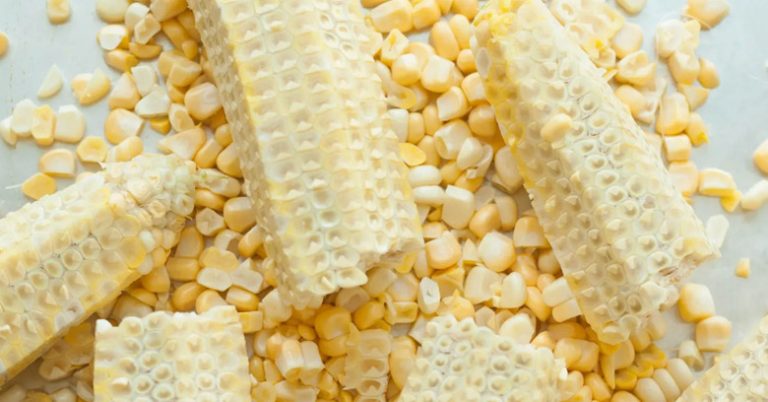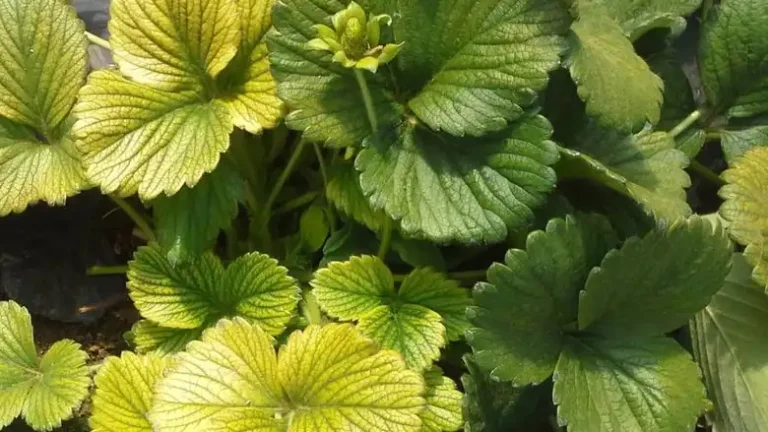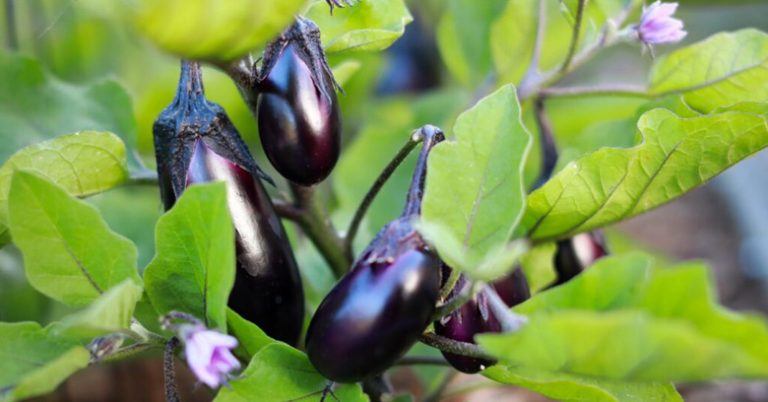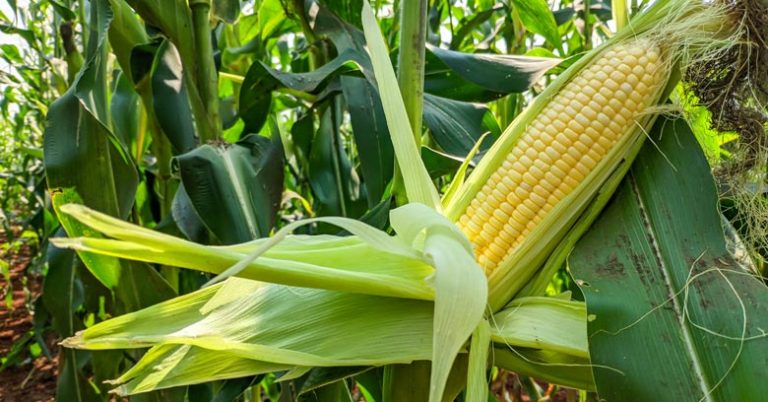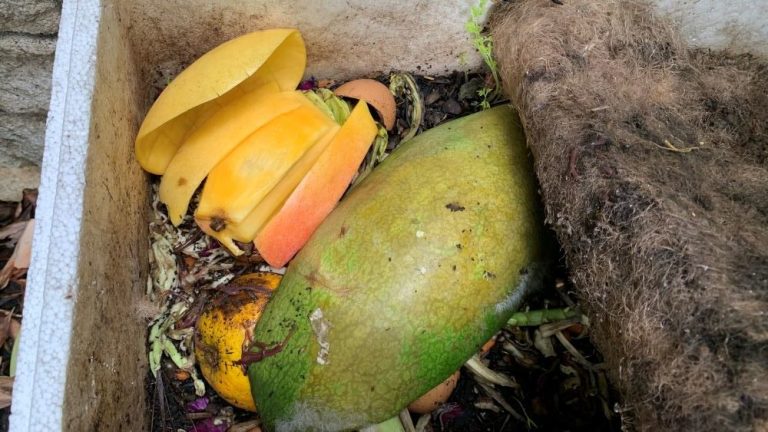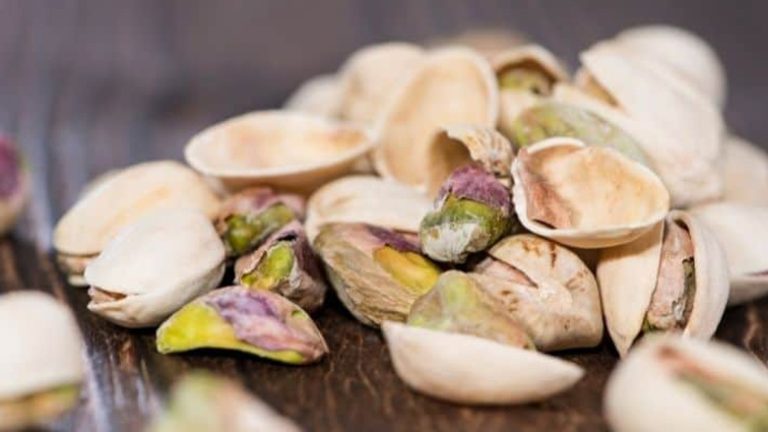Can I Compost Corn Husks | Step-by-Step Guide
Yes, you can compost corn husks easily. Composting corn husks is a simple and effective way to reduce waste and create nutrient-rich soil for your garden.
By breaking down the husks through composting, you can enrich the soil with organic matter and improve its overall health. Composting corn husks also helps divert waste from landfills, contributing to a more sustainable and eco-friendly approach to waste management.
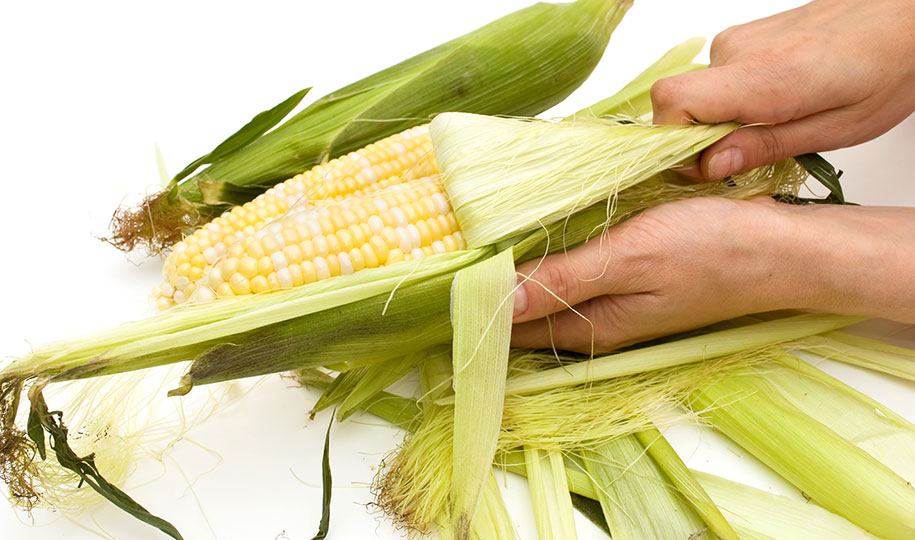
Understanding Corn Husk Composting
Corn husks are a common waste product generated from cooking or processing corn. Rather than throwing them away, can they be composted? In this section, we will explore the benefits of composting corn husks, the composting process, its environmental impact, and the factors to consider before composting corn husks.
Benefits of Composting Corn Husks
Composting corn husks not only helps reduce waste but also offers several benefits for your garden. Here are a few advantages of composting corn husks:
- Nutrient-rich soil amendment: Corn husks are a rich source of organic matter, which improves soil fertility and nutrient content.
- Moisture retention: Compost made from corn husks helps retain moisture in the soil, ensuring that plants have a steady supply of water.
- Pest control: Some studies suggest that composting corn husks can help control garden pests due to their natural pesticide properties.
- Sustainable gardening: By composting corn husks, you contribute to a more sustainable gardening practice by reducing landfill waste and dependence on chemical fertilizers.
Composting Corn Husks at Home
If you have ever wondered what to do with corn husks after enjoying a delicious ear of corn, you’ll be pleased to know that they can be composted. Composting corn husks not only reduces waste but also enriches the soil with valuable nutrients.
We will provide you with a step-by-step guide on composting corn husks at home, recommended composting methods, and best practices for successful corn husk composting.
Step-By-Step Guide to Composting Corn Husks
Composting corn husks may seem daunting at first, but with a little know-how, it can be a breeze. Here is a simple step-by-step guide to get you started.
- Remove any leftover kernels: Before composting your corn husks, make sure to remove any leftover kernels. These can take longer to decompose and may attract unwanted critters to your compost pile.
- Cut the husks into smaller pieces: To speed up the decomposition process, cut the corn husks into smaller pieces. This will expose more surface area, allowing microbes and other organisms to break down the husks faster.
- Mix with other compostable materials: To create a balanced compost pile, mix the corn husks with other compostable materials such as vegetable scraps, yard waste, and coffee grounds. This will provide a variety of nutrients and help maintain the ideal moisture levels in your compost.
- Add nitrogen-rich materials: Corn husks are considered carbon-rich or “browns” in composting terms. To balance the carbon-to-nitrogen ratio in your compost, add nitrogen-rich materials like grass clippings or kitchen scraps. Aim for a ratio of roughly 3 parts browns to 1 part greens.
- Turn the compost pile: Regularly turning your compost pile will help aerate it and speed up decomposition. This is especially important with corn husks, as they can take longer to break down compared to softer materials. Aim to turn the pile every few weeks to keep things progressing smoothly.
- Monitor moisture levels: Corn husks should be kept moist but not waterlogged. Check the moisture levels regularly and adjust as needed. If the pile becomes too dry, add water; if it becomes too wet, add more brown to absorb excess moisture.
- Patience is key: Composting corn husks may take longer than other organic materials, so be patient. It can take anywhere from a few months to a year for corn husks to fully decompose. Regularly check the progress and ensure the compost pile is functioning optimally.
Recommended Composting Methods
There are several composting methods that work well for corn husks. Here are a few options you can consider:
- Backyard compost pile: This is the most common and accessible method for composting corn husks at home. Simply create a compost pile in your backyard and follow the steps mentioned earlier.
- Compost bin or tumbler: If you prefer a more contained and organized approach to composting, invest in a compost bin or tumbler. These containers provide better control over moisture and help prevent odor issues.
- Worm composting: Vermicomposting, or worm composting, is an excellent option for composting corn husks. Red worms, such as Eisenia Fetida love to feast on corn husks and can help speed up decomposition.
Best Practices for Successful Corn Husk Composting
- Chop or shred the husks: Cutting or shredding the corn husks into smaller pieces will help accelerate decomposition and prevent tangling.
- Layer the materials: Layering carbon-rich browns and nitrogen-rich greens will create a balanced compost pile. Alternate layers of corn husks with other organic materials to promote efficient decomposition.
- Maintain proper moisture: Regularly monitor the moisture levels in your compost pile and adjust as needed. Aim for a moist but not waterlogged environment to facilitate decomposition.
- Turn the pile: Turning the compost pile aerates it and ensures even decomposition. Use a pitchfork or compost-turning tool to mix the materials thoroughly.
- Be patient: Corn husks take time to break down completely. Be patient and allow nature to work its magic. The end result will be nutrient-rich compost that can be used to enrich your garden soil.
Alternative Ways to Dispose of Corn Husks
1. Recycling Corn Husks
- Corn husks can be recycled through composting. Composting corn husks is an eco-friendly way to reduce waste and create nutrient-rich soil.
- To compost corn husks, simply add them to your compost pile or bin along with other organic materials like fruit and vegetable scraps, coffee grounds, and yard waste.
- Make sure to shred the corn husks into smaller pieces to speed up the decomposition process.
- The natural fibers in corn husks will break down over time, contributing to the overall organic matter in your compost.
- Once fully decomposed, you can use the finished compost to nourish your garden or potted plants.
2. Utilizing Corn Husks In Creative Ways
- In addition to composting, there are several creative ways to make use of corn husks.
- One popular option is to use them as natural food wrappers. Corn husks can be soaked and then used to wrap tamales or other foods before steaming or grilling.
- They add a subtle flavor and help to keep the food moist during cooking.
- Corn husks can also be dried and used as kindling for starting fires.
- Additionally, they can be woven or braided together to create decorative items like corn husk dolls or placemats.
- Get creative and explore different ways to utilize corn husks in your everyday life.
3. Other Eco-Friendly Options for Corn Husk Disposal
- If composting or creative use of corn husks is not an option for you, there are still other eco-friendly ways to dispose of them.
- Some local farmers or gardeners may be interested in using corn husks as animal bedding or mulch.
- Contact your local agricultural societies or community gardens to explore this option.
- Another alternative is to look for local recycling centers or composting facilities that accept corn husks.
- They may have specific guidelines for drop-off or collection, so make sure to check beforehand.
- Remember, the goal is to divert corn husks from ending up in landfills, where they contribute to methane emissions.
- Explore these environmentally friendly options to ensure your corn husks are disposed of in a sustainable manner.
Dos and Don’ts of Composting Corn Husks
Corn husks are a common kitchen waste that many people wonder if they can compost. The answer is yes, you can compost corn husks! In fact, they are a great addition to your compost pile as they are rich in carbon, which helps balance the nitrogen-rich materials in your compost.
However, there are a few dos and don’ts you should keep in mind when composting corn husks to ensure successful decomposition and avoid any potential issues.
Things to Include In Your Compost Pile with Corn Husks
When composting corn husks, there are a few other materials you can include in your compost pile to enhance the decomposition process and create nutrient-rich compost for your garden:
- Fruit and vegetable scraps: Add in other kitchen waste like fruit and vegetable scraps to provide additional nutrients to your compost pile. Avoid adding oily or processed foods, as they can attract pests.
- Grass clippings: Mix in grass clippings to add nitrogen to your compost pile, which helps speed up the decomposition process. Be sure to mix them well with the corn husks to maintain a balanced carbon-to-nitrogen ratio.
- Fall leaves: Incorporate fallen leaves into your compost pile to provide more carbon. Shred the leaves to speed up the breakdown and ensure they mix well with the corn husks.
- Coffee grounds: Coffee grounds are a great source of nitrogen and can help speed up the decomposition of corn husks. Just make sure to balance it with enough carbon-rich materials.
Things to Avoid When Composting Corn Husks
While corn husks are generally compostable, there are a few things you should avoid adding to your compost pile along with them:
Whole corn cobs: Corn cobs are dense and take a long time to break down. It’s best to remove the corn kernels and compost the cobs separately or find an alternative use for them.
Diseased plants: Avoid adding any plants that show signs of disease or pests to your compost pile. This can help prevent the spread of diseases to your garden when you use compost.
Meat and dairy products: Animal-based products can attract pests and produce odors. It’s best to avoid adding meat, bones, dairy products, or other animal waste to your compost pile.
Weeds: Weeds with mature seeds or invasive roots should be kept out of your compost pile. The heat generated during the composting process may not be enough to kill the seeds, leading to potential weed issues when you use the compost.
Troubleshooting Common Issues In Corn Husk Composting
Composting corn husks is generally a straightforward process, but occasionally, you may encounter a few common issues. Here are some troubleshooting tips to help you overcome these challenges:
- Slow decomposition: If your corn husks are taking longer than expected to break down, ensure that your compost pile has enough moisture and is properly aerated. Turning the pile regularly and adding water if needed can help speed up the decomposition process.
- Unpleasant odors: If your compost pile starts to emit foul odors, it may be too wet or lack enough carbon-rich materials. Add dry leaves or shredded paper to absorb excess moisture and create a more balanced environment. Turning the pile regularly will also help eliminate odors.
- Pest problems: If you notice pests like flies or rodents around your compost pile, avoid adding any food waste or other attractants. Covering the pile with a layer of wood chips or straw can deter pests and keep your compost safe.
Frequently Asked Questions and Answers
Can You Compost Corn Husks In Your Compost Pile?
Yes, you can compost corn husks in your compost pile. Corn husks are rich in carbon and will decompose well, helping to create nutrient-rich compost for your plants. Chop them into smaller pieces for faster decomposition and avoid adding them in large quantities at once to maintain a balanced compost pile.
How Long Does It Take for Corn Husks To Decompose In Compost?
Corn husks take about 6 to 12 months to fully decompose in a compost pile. Factors such as temperature, moisture, and the size of the husks can affect the decomposition process. Regularly turning the compost heap can help accelerate the breakdown of corn husks and other organic materials.
Can You Compost Corn Husks With The Silk?
Yes, you can compost corn husks with the silk. The silk adds additional carbon and nitrogen to the compost pile, enhancing the decomposition process. Make sure to chop the corn husks and silk into smaller pieces to speed up their breakdown and create a more balanced compost mixture.
What are The Benefits of Composting Corn Husks?
Composting corn husks helps reduce waste, enriches the soil, and improves plant growth. The decomposition of corn husks releases nutrients into the compost, which can then be used as a natural fertilizer for your garden or potted plants. Composting also contributes to a healthier environment by reducing landfill waste.
Can You Compost Corn Cobs Along With The Husks?
Yes, corn cobs can be composted along with the husks. However, corn cobs take longer to decompose compared to the husks. To speed up the process, cut the corn cobs into smaller pieces before adding them to your compost pile. Regular turning and moisture management will aid in the breakdown of corn cobs.
Are There Any Considerations When Composting Corn Husks?
When composting corn husks, avoid adding husks from genetically modified corn or corn that has been treated with pesticides. These can disrupt the composting process and potentially harm your plants. Additionally, ensure a proper balance of carbon-rich (browns) and nitrogen-rich (greens) materials in your compost pile for optimal decomposition.
Conclusion
Corn husks can be a valuable addition to your compost pile. By breaking down these fibrous outer layers of corn, you can create nutrient-rich compost that will benefit your garden. The high carbon content in corn husks helps to balance the nitrogen-rich materials in your compost, promoting decomposition and preventing odors.
To effectively compost corn husks, it’s important to shred them into smaller pieces before adding them to your pile. This will allow them to break down more quickly and evenly. Additionally, mixing them with other organic materials, such as fruit and vegetable scraps, grass clippings, and leaves, will provide a well-rounded mix of nutrients for your compost.
